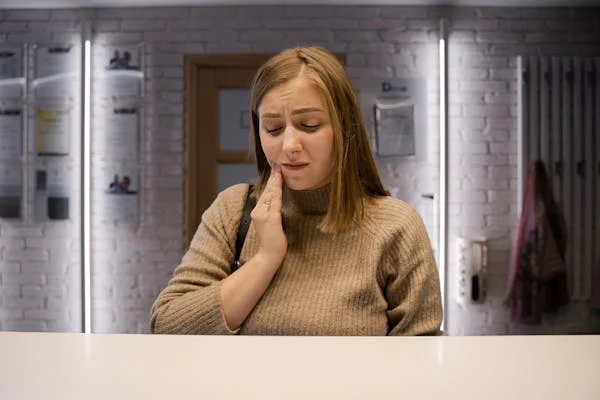What are the Dental Issues with Covid 2025?

What are the Dental Issues with Covid 2025?
The global health community is once again facing challenges as Covid 2025 emerges with new variants and long-term effects. While the focus often remains on respiratory health, many people overlook the dental complications associated with Covid 2025. Oral health is directly linked to overall immunity and well-being, and ignoring it during pandemics can lead to long-term consequences.
This blog will dive into the most common dental issues observed in Covid 2025 patients, why they’re occurring, and how you can protect your oral health. Whether you’ve recently recovered, are undergoing treatment, or are just looking to stay proactive, this guide is for you.
How Covid 2025 Affects Your Oral Health
The coronavirus has evolved, and so have its effects on the body. In Covid 2025, several patients have reported an increase in oral and dental problems due to a combination of systemic inflammation, medications, and decreased access to routine dental care.
The most common symptoms impacting oral health include:
- Dry mouth (xerostomia)
- Gum inflammation
- Tooth sensitivity or decay
- Oral ulcers or fungal infections
- Jaw pain or TMJ dysfunction
- Tooth discoloration or loss in rare cases
These issues are not just coincidental — they are rooted in physiological changes caused by the virus, immune responses, and stress.
Common Dental Issues Linked to Covid 2025
| Dental Issue | Possible Cause from COVID-2025 | Symptoms | Prevention/Treatment |
| Dry Mouth (Xerostomia) | Dehydration, medications, oxygen therapy | Sticky mouth, trouble swallowing | Stay hydrated, use saliva substitutes |
| Gum Disease (Gingivitis) | Immune response, poor oral hygiene during illness | Bleeding gums, swelling | Brush/floss regularly, use antiseptic mouthwash |
| Oral Thrush (Candidiasis) | Weakened immune system, antibiotic use | White patches, soreness | Antifungal medication, maintain oral hygiene |
| Tooth Sensitivity/Decay | Acidic environment, diet changes, lack of brushing | Pain with hot/cold | Fluoride toothpaste, dental visits |
| TMJ or Jaw Pain | Clenching due to stress, post-viral fatigue | Jaw soreness, headaches | Use of mouthguard, relaxation techniques |
| Tooth Discoloration/Loss | Vascular damage, inflammation (rare cases) | Darkened teeth, loose teeth | Dental consult, potential restoration |
Post-Covid 2025 Dry Mouth: A Silent Threat
Dry mouth, or xerostomia, is one of the most reported complaints post-recovery from Covid 2025. This condition can lead to accelerated tooth decay, bad breath, and difficulty speaking or chewing. It often results from medications, fever, or oxygen therapy used during treatment.
How to Manage Dry Mouth:
- Increase fluid intake
- Avoid caffeinated beverages
- Use over-the-counter saliva substitutes
- Chew sugar-free gum to stimulate saliva
Gum Inflammation and Covid 2025 Recovery
Patients recovering from Covid 2025 often show signs of gum inflammation. This may stem from heightened immune activity or from reduced oral hygiene during illness.
Chronic inflammation in the gums can contribute to more serious conditions such as periodontitis, which has been linked to cardiovascular issues.
What You Can Do:
- Brush twice a day and floss daily
- Use an antimicrobial mouthwash
- Avoid sugary and acidic foods
- Schedule professional cleanings post-recovery
Oral Fungal Infections After Covid 2025
Due to a weakened immune response or prolonged antibiotic use, oral thrush (candidiasis) is becoming more common in Covid 2025 patients. This fungal infection causes white lesions in the mouth and can be painful or irritating.
Symptoms to Watch:
- White patches on the tongue or inside the cheeks
- Redness or burning sensations
- Difficulty swallowing
Consult your dentist if you notice any of these signs for early treatment.
TMJ Disorders: Stress and Jaw Pain Post-Covid 2025
The mental toll of Covid 2025 is significant. Stress and anxiety have led to an increase in bruxism (teeth grinding) and TMJ disorders. Patients report jaw stiffness, pain while chewing, and frequent headaches.
Relief Options:
- Stress management techniques (yoga, meditation)
- Custom night guards
- Avoiding hard or chewy foods
- Applying warm compresses to the jaw area
When to See a Dentist During or After Covid 2025
While non-urgent care may be delayed during outbreaks, dental issues shouldn’t be ignored. Pain, swelling, bleeding, or signs of infection require immediate attention.
Your dentist can offer:
- Telehealth consultations
- Emergency care
- Guidance on at-home oral hygiene
- Preventive treatments post-recovery
Protecting Your Teeth During the Covid 2025 Era
Prevention is always better than cure. To minimize your dental risks during Covid 2025:
- Maintain a consistent oral hygiene routine
- Use fluoride-based toothpaste
- Stay hydrated
- Eat a balanced, low-sugar diet
- Get regular dental checkups (virtually if needed)
Wrapping it Up
The oral health consequences of Covid 2025 are real, wide-ranging, and often underestimated. From dry mouth and infections to serious gum diseases, dental issues can significantly affect recovery and overall health.
By staying informed and proactive, you can protect yourself from long-term oral health complications. If you’ve been affected by Covid 2025 and are experiencing dental symptoms, don’t wait—schedule a visit with an experienced dental professional.
Visit Ramlaoui, D.D.S. to book your consultation and get personalized dental care from trusted professionals.

